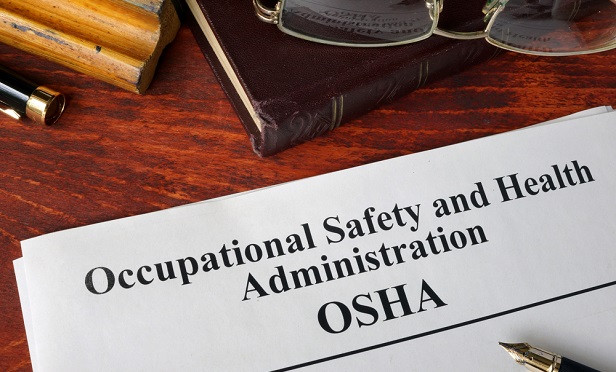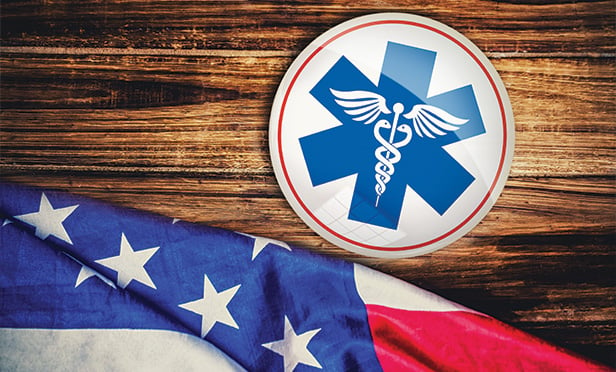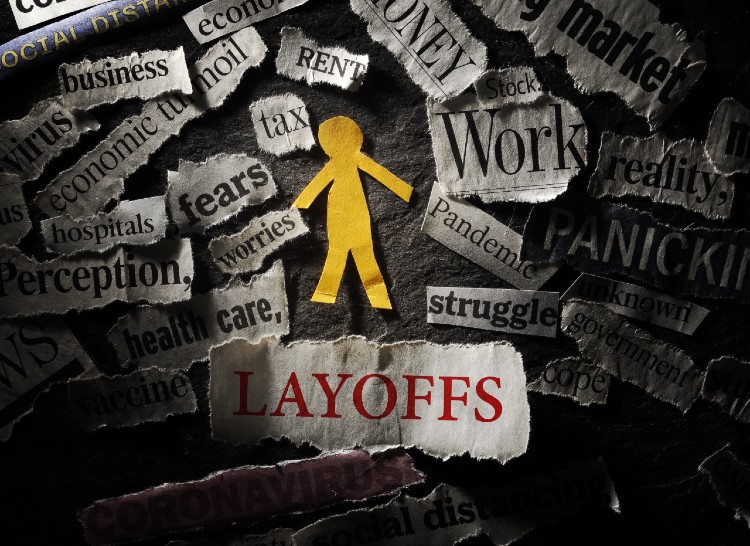For those acquainted with private sector retirement plans, the number was jaw dropping: The crushing economic impact of the COVID-19 virus could force up to one-third of private-sector 401(k) plans—or about 200,000—to terminate.
"The figure was an eye-opener," said Nevin Adams, chief of marketing and communications for the American Retirement Association and editor of NAPA's daily industry news feed.
ARA surveyed recordkeeper and third-party administrator service providers to retirement plans to gauge the impact of the economic shutdown on sponsors of 401(k) plans.
Most of the 111 respondents primarily service plans with less than $10 million in assets. Working with Jack VanDerhei, an economist and research director of the Employee Benefit Research Institute, Adams created a model from the survey responses. The upshot: Nearly 42 percent of the respondents' small business clients were candidates for plan termination.
Extrapolate that figure to the entire universe of plans with $10 million or fewer assets—about 517,000 nationwide—and you come to the terrifying prospect of 216,000 retirement plans forced to terminate under the COVID-19 pandemic.
Massive leap of math?
"We're not saying it will happen," explained Adams. "With luck, it never comes to that, just like we are seeing with some of the early mortality figures from Corona modeling. Our point is that it could happen, and you don't need a massive leap of math to get there quickly."
A recent survey by the U.S. Chamber of Commerce showed one quarter of small businesses are two months or less away from permanently closing. That would mean about 7.5 million closures of the country's 30.2 million small businesses.
The Chamber's survey does not account for which of those businesses are retirement plan sponsors. Conservatively, assume 2 percent are. That would mean 150,000 plan terminations.
"The country can't take that kind of hit"
Last week, the Wall Street Journal cited the figure. Other mainstream business outlets have since. Whether the ARA/EBRI modeling holds up to scrutiny or not, one thing all would undoubtedly agree on is that if it were to prove correct—or anywhere remotely near correct—it would be devastating for the country's retirement security.
"The country can't take that kind of hit," said Adams.
At first, Adams was incredulous of the number, which is why he and his team have made their modeling public. Others also think it's high. Stuart Robertson, founder and president of ShareBuilder 401(k), which services 6,500 small and midsized plans, used ARA's survey data and assumed a 25 percent termination rate among those reported "candidates" for termination.
He came to a much smaller actual termination number—10,278.
"Being a candidate to terminate versus acting and actually terminating is key," said Robertson. "It's also important to note that the small business plan market has the most churn compared to the mid and large plan market."
Mergers, the retirement of small business owners, and business failures are typical occurrences that terminate plans in normal times, notes Robertson.
"Is 10,000 plans a lot to terminate in a quarter? No, it's not overwhelming. Are a lot of companies impacted and will they need to be aggressive to survive? Yes. Would that number be 200,000? Maybe. What percentage of businesses fail and will need to terminate plans remains a wide open question," said Robertson.
No spike in terminations—yet
Retirement plan penetration in the 100-employee-and-fewer market is light—about 8 percent, says Robertson. Moreover, 24 million small businesses are owner-only employers.
Like it or not, sponsors of 401(k) plans tend to be more financially stable companies. But these times are truly uncanny, both in the pandemic's impact on families and the economy, and in terms of the federal response of pumping trillions into the economy.
From January through March, ShareBuilder 401(k) did not see a spike in business closures. "I expect one—I don't know when," said Robertson. "We're encouraged by how quickly the government has moved. But we want to be realistic. Businesses and people need cash now. The next two months will be defining."
Employers need a lifeline
When Adams and his team set out to gather actionable data from service providers, time was of the essence. Has it ever been more so as the country is in an existential race against Covid-19?
Any modeling—be it of potential retirement plan terminations or viral mortality rates—is dependent on the data feeding the model, said Adams.
The ARA model relies on a weighted assumption that the respondents service an average of 150 plans, a conservative, but not perfect estimate, Adams admitted. In COVID-19 time, the pursuit of perfection over the good can literally have fatal consequences.
"We tried to use middle-of-the-road assumptions informed by the responses from people that are working with retirement plans," explained Adams.
The survey's uncontroversial bottom line is the COVID-19 pandemic has the potential to wreak havoc on the country's retirement prospects.
"The breadth of this uncertainty is unlike anything the country has experienced," said Adams, who, it should be noted, is not a man given to alarmist sentiment.
ARA is advocating for relatively simple regulatory and legislative action that could help businesses survive, and keep retirement plans from terminating.
Notice-relief for safe harbor plans—80 percent of which are small businesses—and non-discrimination and top-heavy testing relief could help struggling business suspend matches, and channel that cash into payroll and otherwise keep the lights on.
"Let's say an employer suspends a match, and then moves out of safe harbor status. They then are subjected to non-discrimination testing," explained Adams. For a small business in times of survival, that would be an onerous task. "It might lead a small business to fold up its plan and go home."
The CARES Act gave important relief to plan participants and retirement savers, said Adams, but it did nothing to address employers' requirements to their retirement plans that could provide meaningful relief as they struggle to survive.
"Sponsors need a lifeline," he said. "We're not asking for permanent changes. Just some breathing room on notices, contributions, and testing."
READ MORE:








